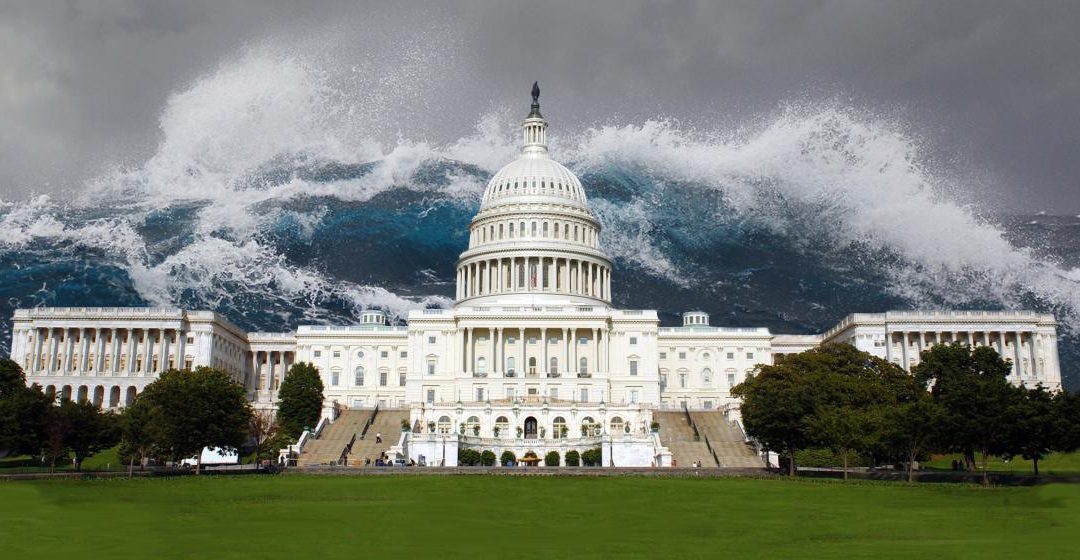Most Capitol Hill Republicans will concede, at least in private conversations, that the House is lost. They fully expect to lose the majority on election day, and for Democrats to be in charge come January. In fact, hiring is going on right now at lobbying firms for well-connected Democratic staffers who will have influence with the new majority.
So If that blue wave is large enough for Democrats to pick up at least 23 seats and ride their way to flipping the House, could it be big enough to flip the Senate too?
The odds still say no. But for the first time all year, it’s become a realistic possibility.
Charlie Cook, the renowned non-partisan editor of the Cook Political Report, says there are nine senate races to watch closely come November.
Arizona, Florida, Indiana, Missouri, Nevada, North Dakota, Tennessee, Texas and West Virginia.
Five of them are currently held by Democrats (IN, FL, MO, ND, WV), and four by Republicans (AZ, NV, TN, TX).
Right now the polls have the races tight:
Republicans hold the edge in FL, MO, ND & TX, while Democrats lead in AZ, IN, NV, TN & WV.
For Democrats to reach the magic 51 seats in the senate, they’ll need to win at least seven of these nine races.
That would have been unthinkable. Until recently.
“It’s amazing, you look at the map and think Republicans should be picking up seats in this election,” said Cook. “But then you look at the political environment, the atmospherics, and you think ‘gosh this is a wave.'”
Cook says you need to only at Texas to see how badly Republicans are performing in this midterm election.
“If Ted Cruz wins by only a point or two, or loses, then you’re talking about congressional seats, you’re talking about state legislative seats, that means Republican turnout is through the floor,” said Cook. “To me the difference between a bad night for Republicans and a really, really bad night is if the Republicans who are not ‘tea party’ or evangelicals don’t show up, boom, that’s where the floor falls out.”
Trump says he’ll campaign for Cruz and other Republican candidates, but some, including Florida Gov. Rick Scott, are busy distancing themselves from the administration.
“This election is a referendum on the president, that’s the beginning and the end of it,” said Cook.


